In an era where information is predominantly consumed online, the ability to convert content from browsers into PDFs has become invaluable. Specifically, for Microsoft Edge users, this functionality facilitates easy archival, sharing, and offline viewing of web content. This guide delves into the practicality and processes of converting web pages from Microsoft Edge to PDF, covering various scenarios where this feature proves essential. From preserving important articles to compiling research materials, understanding how to efficiently convert Microsoft Edge to PDF is a skill worth acquiring. Continue reading to explore the methods, tools, and tips to streamline this conversion process and enhance your digital documentation efforts.
Part 1. Possible Scenarios For Converting Microsoft Edge to PDF
Transitioning from our exploration of the myriad uses of PDF files, we approach a particularly practical application: converting content from Microsoft Edge into PDF format. In the upcoming section, we'll uncover the diverse scenarios that might prompt such a conversion. Whether you're aiming to compile research, share information reliably, or archive web content, understanding these contexts will illuminate why transforming Microsoft Edge pages into PDFs has become an essential skill in our digital toolkit.
#1 Default Browser PDF Viewer
It's not uncommon for users to inadvertently set Microsoft Edge as their default PDF viewer. This usually occurs during the installation or update of the Edge browser, where prompt screens might suggest or automatically apply default application settings, including setting it as the preferred app for opening PDF files. For many, this change goes unnoticed until they attempt to open a PDF and find it launching in Edge instead of their usual PDF viewer. While Microsoft Edge offers a competent PDF viewing experience, some users prefer dedicated PDF applications for their advanced features and familiar interface.
When you set Edge as the default PDF opener, a Edge icon will be displayed on the PDF:
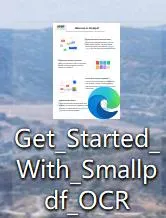
Bonus
Windows • macOS • iOS • Android 100% secure
#2 Saving a Webpage as a PDF
Many users find themselves needing to save webpages opened in Microsoft Edge as PDFs for various reasons. This method of saving information offers a static snapshot of the webpage, preserving its content and layout exactly as viewed online. Whether for academic research, business documentation, or personal archiving, converting a webpage to PDF ensures that the information remains accessible and unaltered, regardless of future changes to the website or internet connectivity issues. Additionally, PDFs are universally compatible across platforms and devices, making them an ideal format for sharing and storing web content in a reliable and professional manner.
Part 2. How to Transform a PDF from Microsoft Edge into a Standard PDF?
Having explored the various reasons why users may find themselves needing to save or handle web content in PDF format, particularly through Microsoft Edge, we now transition to a more specific, technical query that often arises: how does one convert a PDF that's been viewed or saved via Microsoft Edge into a regular PDF file? This question stems from the desire to ensure compatibility, enhance functionality, or simply to work within a preferred PDF viewer or editor. In the following section, we will guide you through the steps and tools necessary to seamlessly transition your Microsoft Edge PDFs into regular PDF documents, enhancing your flexibility and control over your digital files.
Method 1. Changing the Default PDF Viewer
If you are intending to convert a Microsoft Edge PDF to regular PDF, you should change your default PDF viewer to a more specialized application, such as UPDF. This method is particularly beneficial for users who frequently encounter PDFs in their daily digital interactions and prefer a dedicated PDF tool's enhanced features and usability. Follow the steps below:
- Right-click on the PDF.
- Select "Open with" > "Choose another app".
- In the pop-up window, choose UPDF.
- Check the "Always use this app" box and click "OK".
- If your preferred software isn't listed, click "More apps" to expand the options.
- Scroll down and click "Look for another app in this PC".
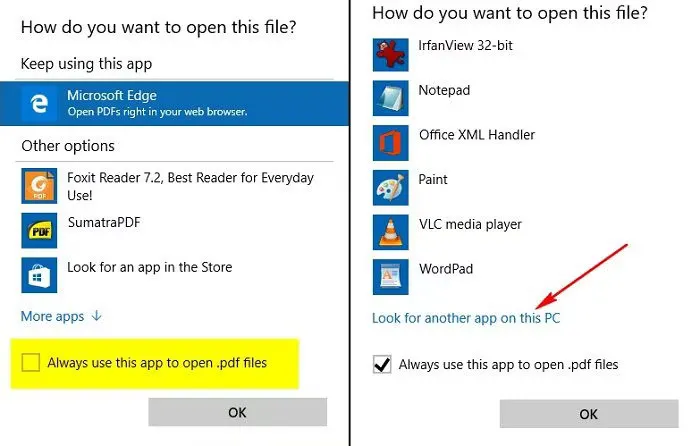
- Locate and select your preferred software to set it as the default PDF viewer.
By setting UPDF as your default PDF viewer, you not only streamline your workflow but also unlock advanced editing, annotating, and managing capabilities that Edge cannot provide. Make the switch to UPDF today, and transform your PDF experience with superior clarity and control, ensuring your documents are always in the right hands.
Windows • macOS • iOS • Android 100% secure
Method 2. Saving the Microsoft Edge Webpage
As mentioned in Part 1, if you are looking for a method to convert a webpage opened in Microsoft Edge to a PDF, one practical approach is to utilize the browser's save/print feature. This method is ideal for capturing the content of a webpage in a static format, suitable for archival or sharing purposes. Follow the steps below to do so:
- On the webpage that you want to export as a PDF, click on the Settings and more button (three dots) located at the top-right corner.
- Choose the Print option.Quick tip: Alternatively, you can use the keyboard shortcut Ctrl + P to open the printing experience in the Chromium version of Microsoft Edge.
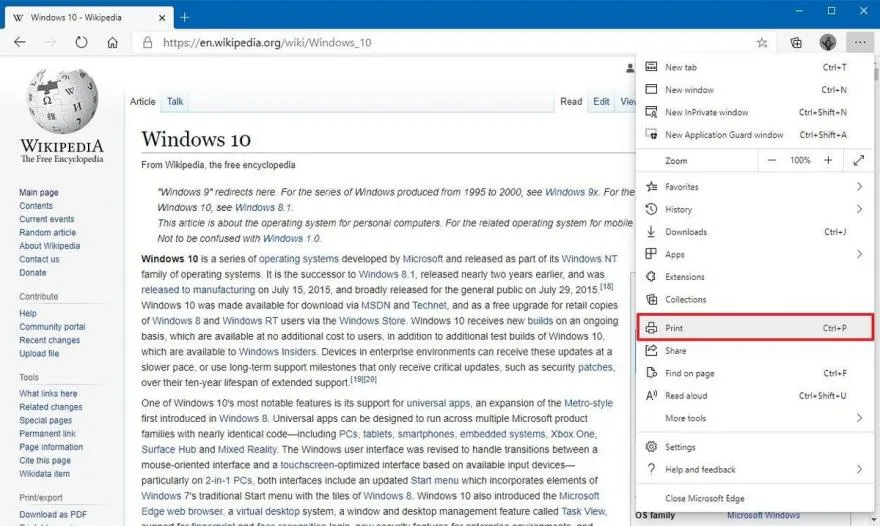
After that, you can open the saved PDF in Microsoft Edge. However, it's important to note that while Microsoft Edge offers basic PDF viewing and saving capabilities, it may fall short in terms of editing and annotating features. This is where UPDF steps in as a superior alternative, providing a comprehensive suite of editing tools that go beyond what the Edge PDF viewer can offer. For an enhanced PDF experience, consider UPDF to unlock advanced functionality and transform your PDFs into versatile documents ready for any task.
Windows • macOS • iOS • Android 100% secure
Part 3. UPDF: A Comprehensive PDF Document Manager
Having delved into the convenience of converting Microsoft Edge webpages to PDFs and the limitations of Edge's native PDF capabilities, let's broaden our horizon to explore the extensive array of features offered by UPDF. This powerful tool not only excels in conversion but also brings a wealth of functionality to enhance your PDF experience.
UPDF transcends the typical PDF editor with a suite of features designed to streamline your document management workflow. Beyond simple conversion, it offers robust editing capabilities, allowing users to modify text, images, and links directly within the PDF. Annotation tools are extensive, including highlighting, underlining, and note-taking, perfect for collaborative review sessions. For those concerned with document organization, UPDF facilitates the rearrangement of pages, merging, and splitting of PDF files, ensuring that your documents are structured exactly how you need them.
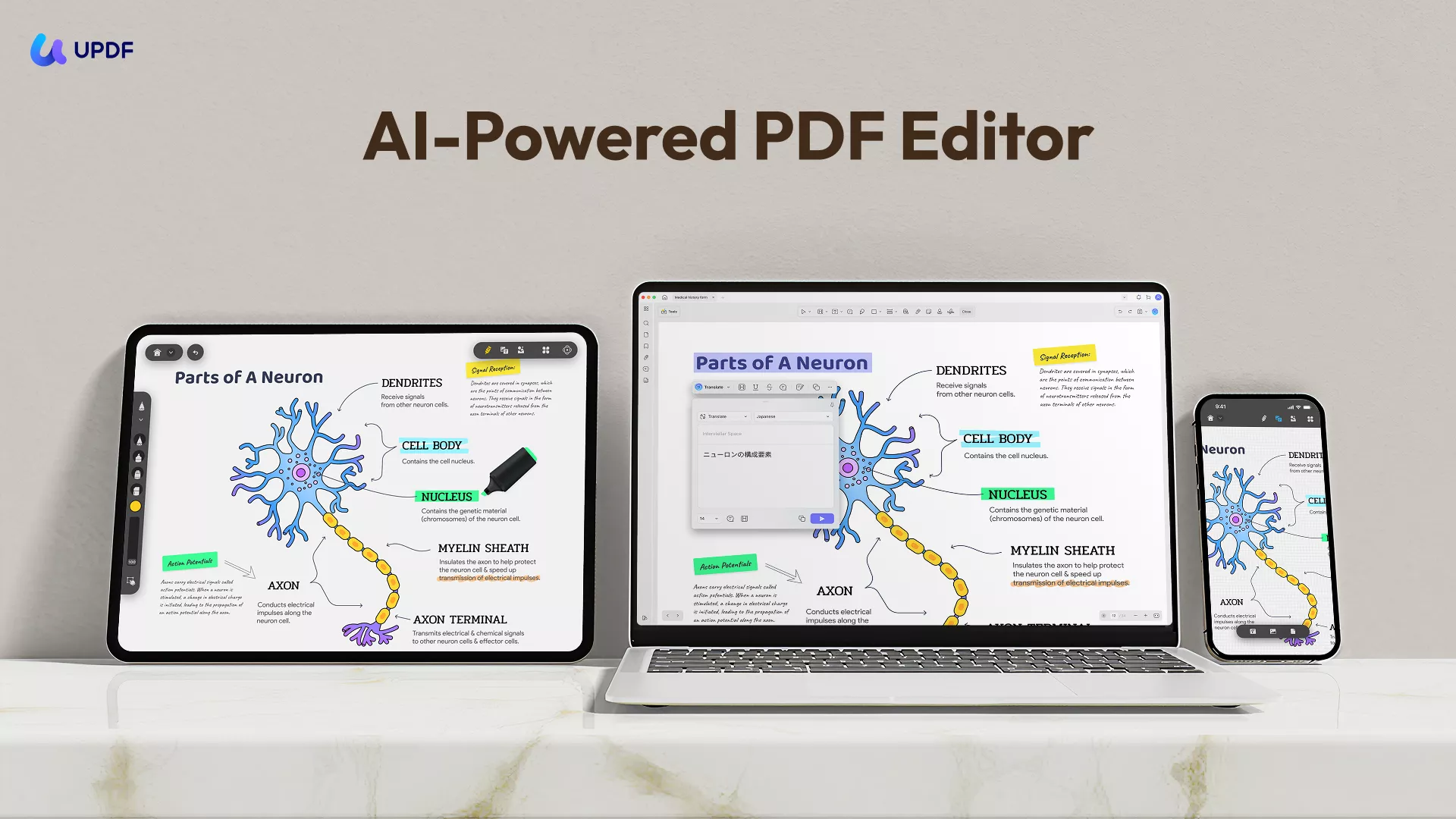
Security is also a priority; UPDF provides encryption and permission settings to protect sensitive information. Additionally, its OCR technology enables the conversion of scanned documents into editable and searchable text, bridging the gap between paper and digital.
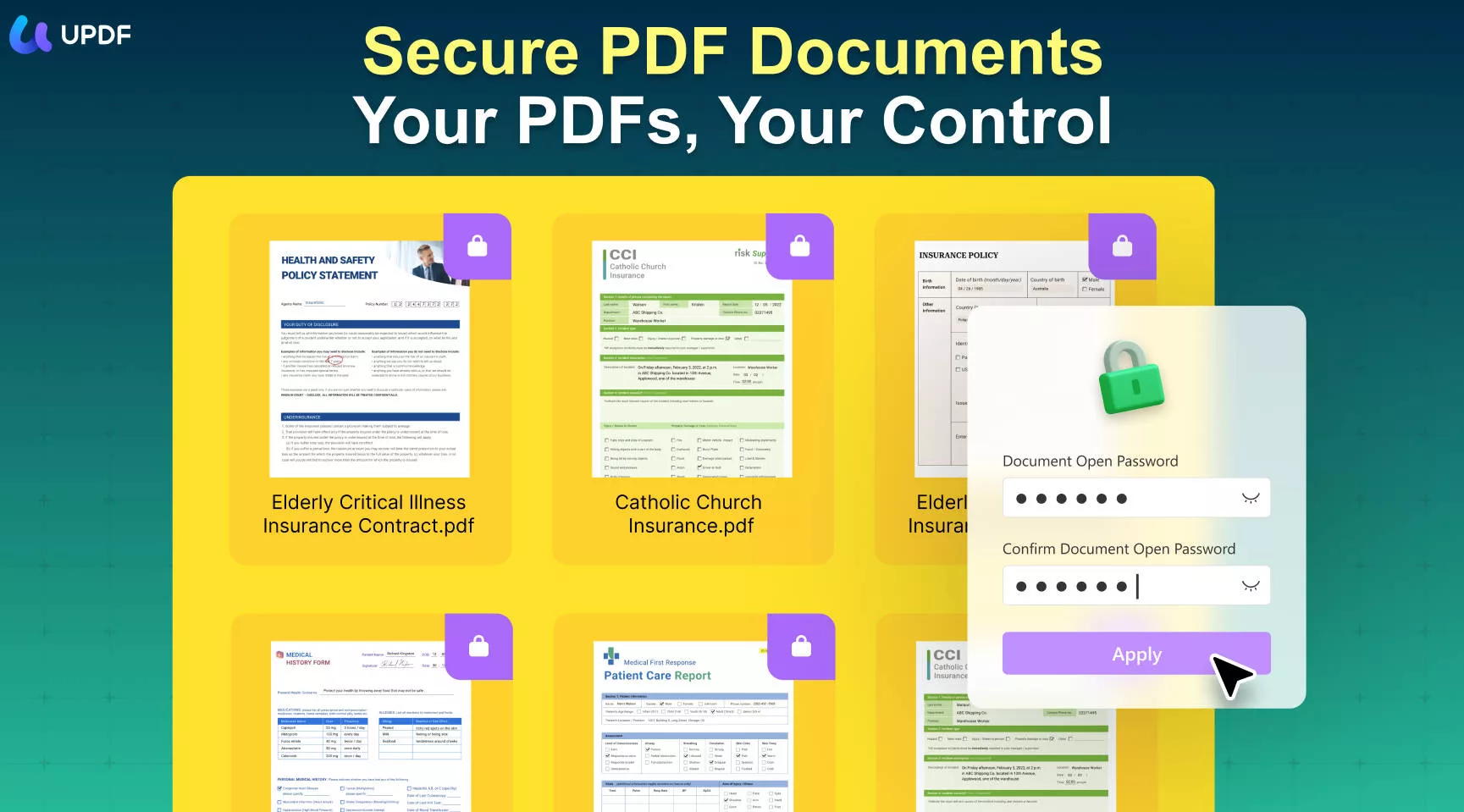
Unlock the full potential of your PDFs with UPDF. Its comprehensive features offer unmatched efficiency and productivity, making it an ideal option for professionals seeking a superior document management solution. Embrace UPDF and elevate your PDF experience today.
Windows • macOS • iOS • Android 100% secure
Part 4. FAQs About Converting Microsoft Edge to PDF
Q1. How do I stop links from opening in Microsoft Edge?
To stop links from automatically opening in Microsoft Edge, you can change your default web browser settings. This process involves navigating to your device's system settings, where you can select your preferred browser as the default for opening web links.
By doing so, any links clicked will open in the browser of your choice instead of Edge, allowing you to customize your browsing experience according to your preferences and workflow. Remember, the exact steps to change your default browser can vary depending on your operating system, so it's worth consulting the help resources or settings menu of your device for specific instructions.
Q2. What is the shortcut for Save As PDF in Edge?
In Microsoft Edge, the shortcut to directly initiate the "Save As PDF" function isn't a single key combination due to the nature of the browser's interface and functions. Instead, users can quickly access the print dialog, which offers the option to save a webpage as a PDF, by pressing Ctrl + P (on Windows) or Cmd + P (on macOS).
From the print dialog, you can change the printer destination to "Save as PDF" and then save the content of the web page as a PDF file. This method is a convenient workaround to achieve the desired result without navigating through menus.
Q3. What is the best free PDF reader?
The best free PDF reader often depends on the user's specific needs, but UPDF stands out for its comprehensive features and reliability. It provides a wide array of functionalities, including viewing, printing, and annotating PDFs. UPDF also supports form filling and signing, making it a versatile tool for personal and professional use. Its integration with AI technology (UPDF AI) enhances its capabilities, making it a top choice for users looking for a robust and free PDF reading solution.
Conclusion
In the above content, we offer two methods for converting Microsoft Edge to PDF. Furthermore, it's evident that having the right tools at your disposal is crucial. UPDF stands out as an exceptional ally in reading and editing PDF files. Moreover, it also provides a range of features to edit, annotate, and manage your PDFs with unparalleled ease. Whether you're looking to preserve web content or enhance your document workflows, UPDF offers a comprehensive solution that caters to all your needs. Embrace the power of UPDF to transform your digital documents and elevate your productivity to new heights.
Windows • macOS • iOS • Android 100% secure
 UPDF
UPDF
 UPDF for Windows
UPDF for Windows UPDF for Mac
UPDF for Mac UPDF for iPhone/iPad
UPDF for iPhone/iPad UPDF for Android
UPDF for Android UPDF AI Online
UPDF AI Online UPDF Sign
UPDF Sign Edit PDF
Edit PDF Annotate PDF
Annotate PDF Create PDF
Create PDF PDF Form
PDF Form Edit links
Edit links Convert PDF
Convert PDF OCR
OCR PDF to Word
PDF to Word PDF to Image
PDF to Image PDF to Excel
PDF to Excel Organize PDF
Organize PDF Merge PDF
Merge PDF Split PDF
Split PDF Crop PDF
Crop PDF Rotate PDF
Rotate PDF Protect PDF
Protect PDF Sign PDF
Sign PDF Redact PDF
Redact PDF Sanitize PDF
Sanitize PDF Remove Security
Remove Security Read PDF
Read PDF UPDF Cloud
UPDF Cloud Compress PDF
Compress PDF Print PDF
Print PDF Batch Process
Batch Process About UPDF AI
About UPDF AI UPDF AI Solutions
UPDF AI Solutions AI User Guide
AI User Guide FAQ about UPDF AI
FAQ about UPDF AI Summarize PDF
Summarize PDF Translate PDF
Translate PDF Chat with PDF
Chat with PDF Chat with AI
Chat with AI Chat with image
Chat with image PDF to Mind Map
PDF to Mind Map Explain PDF
Explain PDF Scholar Research
Scholar Research Paper Search
Paper Search AI Proofreader
AI Proofreader AI Writer
AI Writer AI Homework Helper
AI Homework Helper AI Quiz Generator
AI Quiz Generator AI Math Solver
AI Math Solver PDF to Word
PDF to Word PDF to Excel
PDF to Excel PDF to PowerPoint
PDF to PowerPoint User Guide
User Guide UPDF Tricks
UPDF Tricks FAQs
FAQs UPDF Reviews
UPDF Reviews Download Center
Download Center Blog
Blog Newsroom
Newsroom Tech Spec
Tech Spec Updates
Updates UPDF vs. Adobe Acrobat
UPDF vs. Adobe Acrobat UPDF vs. Foxit
UPDF vs. Foxit UPDF vs. PDF Expert
UPDF vs. PDF Expert



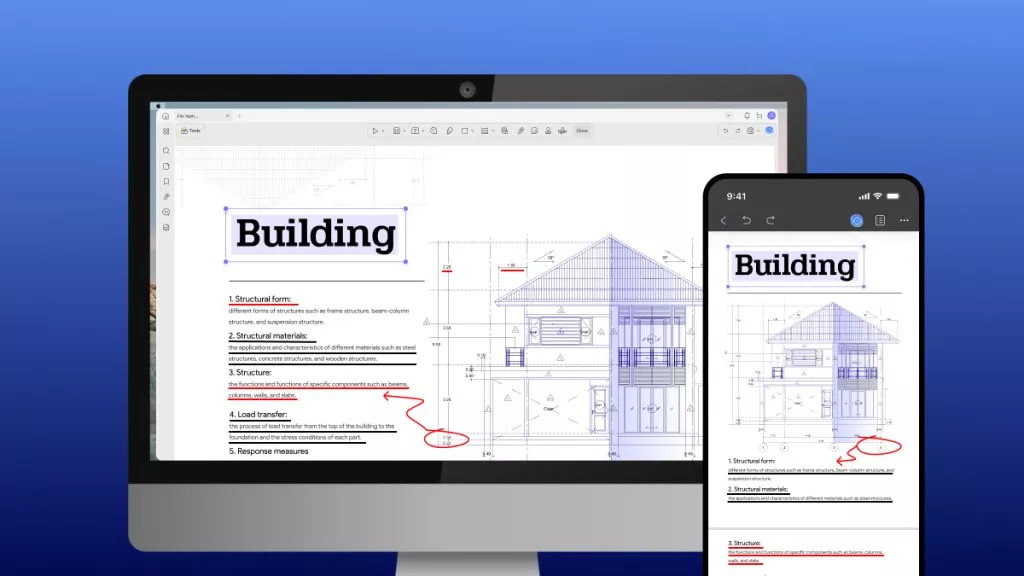

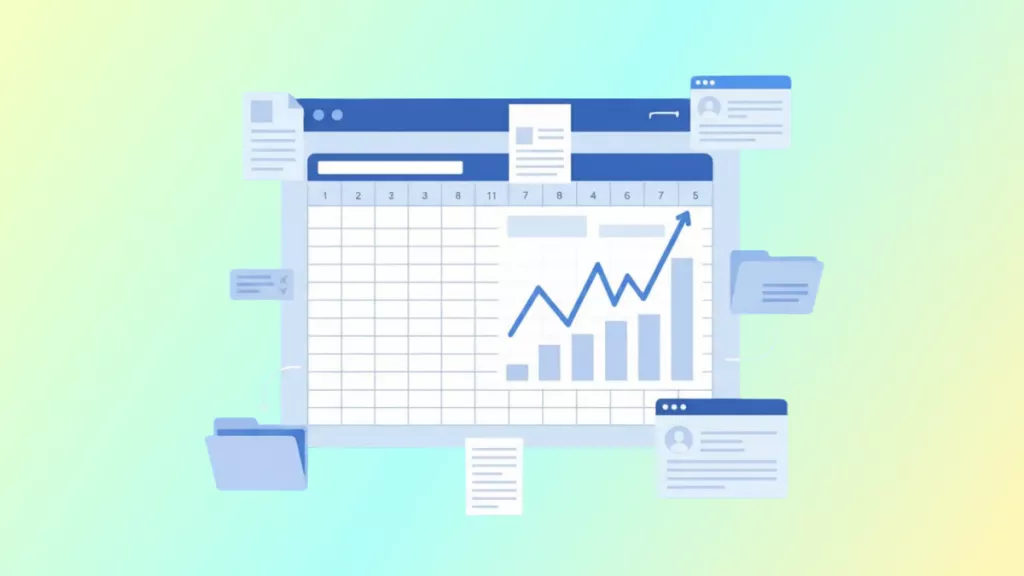

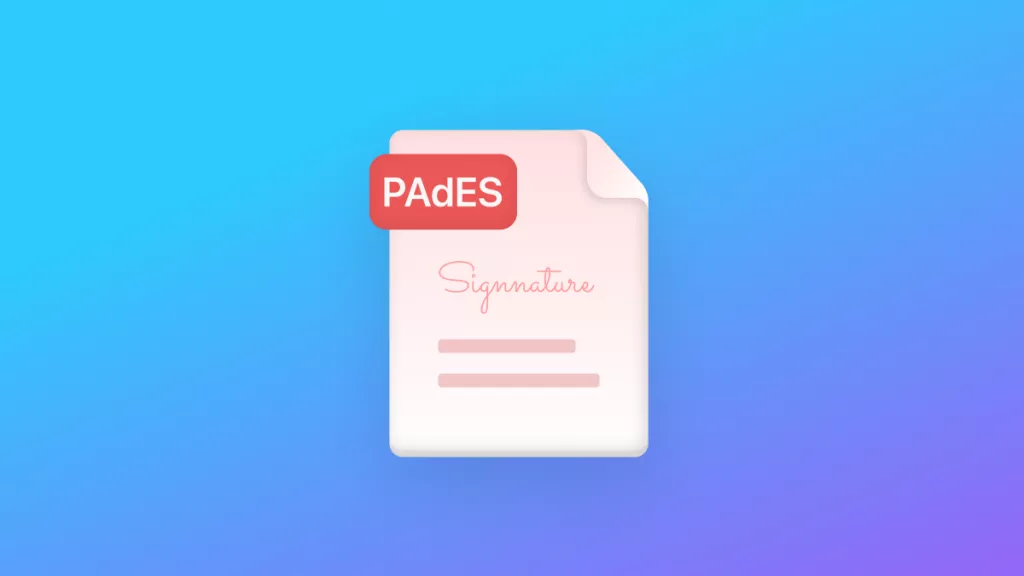

 Engelbert White
Engelbert White 


 Lizzy Lozano
Lizzy Lozano 
 Enya Moore
Enya Moore 